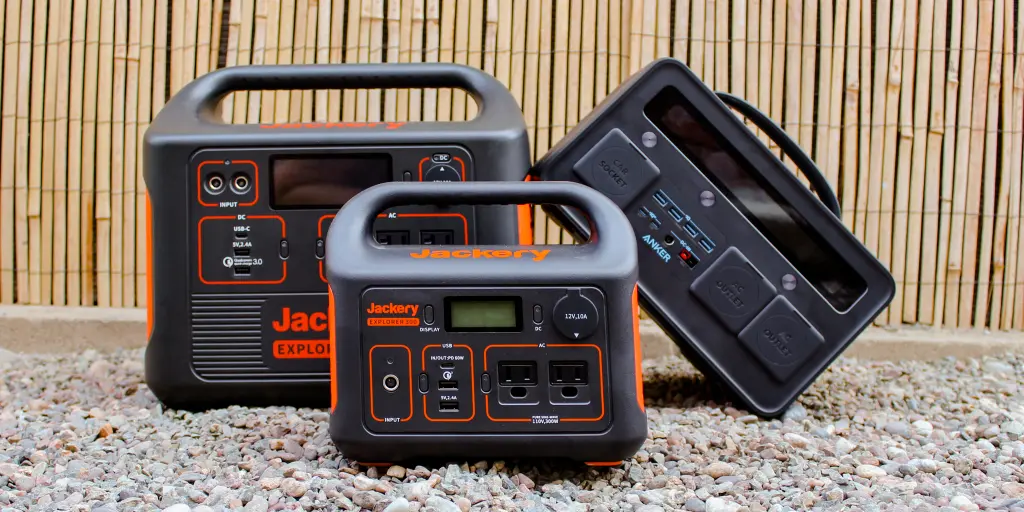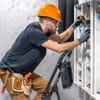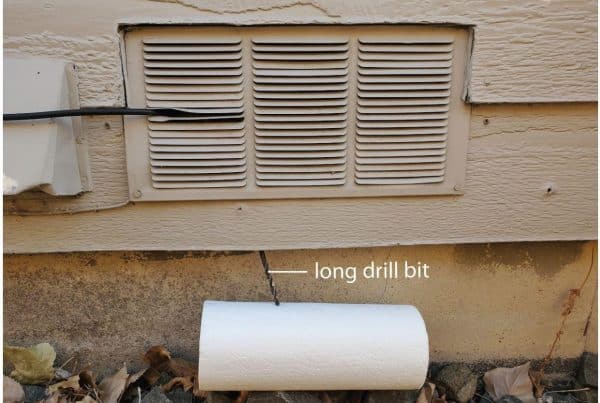We’re in an age where the power demand is everywhere. With the evolution of technology and our personal lives, we rely on power to keep many devices up and running throughout the day. Even in our cars, we have more accessories than ever working off larger batteries to keep them functioning correctly. From battery-powered office equipment to vehicles, we need power for it all. However, a specific change can significantly affect your finances: switching to a battery operated outlet. But the switch doesn’t need to be overwhelming. To help you get started, here are some tips to consider when making that change.
What are Battery Powered Outlets?
Battery power outlets, also known as “battery-operated receptacles” or “battery charging stations,” are electrical outlets that can be used to charge batteries for a variety of devices. They’re typically found in public places like airports and offices but are also available at home.
There are two types of battery power outlets: designated and un-designated. A designated outlet has been set up to allow people to charge their phones, laptops, tablets, or other devices.
This type of outlet is often found in public places where many people have electronic devices—like airports or shopping malls—and it can be very convenient when you need to charge your phone before heading out on your next flight or into your next meeting.
An un-designated outlet will work just fine if you need somewhere to plug in your phone charger. These are usually found in homes and offices where there aren’t many people around who want to use them for charging purposes (though some businesses do offer un-designated outlets).
No Surge of Power
The best replacement for traditional power outlets is a battery-powered outlet. They provide the same comfort and simplicity but without the chance of damaging your gadgets from surges. This means that there will be no damage to your devices when you plug them in. The only thing that may happen is that it may take a little bit longer for your device to charge. However, this does not mean that it will cause any damage to your devices or the outlets themselves.
Battery power outlets are designed to prevent power surges from entering your home. They do it by using a circuit breaker that stops the flow of electricity if it exceeds a certain level. If you’ve ever had an appliance catch fire or explode because it got too much voltage, you know how important this is!
No Fuses to Blow
Battery power outlets have many advantages, but one of the most notable is that they can cut down on the frequency with which fuses need to be replaced. You pull electricity from the socket to run your devices when you use a regular power outlet. This means that when you overload an outlet, it will blow its fuse and shut off. If this happens too often, you’ll need to replace the fuse each time it blows, which can get expensive.
Battery power outlets work differently: they draw power from a battery and store it until you need it. If you overload an outlet, there’s no need for a fuse—the battery will simply hold onto all the energy until it’s needed again. This signifies that even though you might have more devices plugged into your battery-powered outlets than are recommended (like five lamps instead of three), this won’t cause any damage or require any maintenance!
No Need for a Meter
With a battery power outlet, you don’t need to install a meter. This can save you money because it eliminates the cost of installing a meter and paying an electrician to install it. If you are planning on using solar panels or wind turbines, you will still need to have a meter installed to pay for the electricity generated by these sources.
If you want to use your outlets without paying for electricity, you only need a generator or solar panels. Generators will only work when there is no sunlight or wind, but if there are clouds in the sky or windy outside, they will work perfectly fine without any issues whatsoever! On the other hand, solar panels need sunlight to produce electricity, but if there isn’t any sunlight, they won’t be able to make any energy, day or night!
Take Out the Guesswork and Frustration
Because they don’t require wiring, battery power outlets are much less expensive than traditional outlets. And because they aren’t connected directly to your home’s wiring system, there’s no danger of electrical fires–just make sure you use only high-quality batteries!
These outlets are designed to be used in places where traditional wired outlets aren’t practical, like camping or working on a project outside. They’re also great for people who live in apartments or other buildings that don’t allow for the permanent installation of new electrical fixtures. You can easily install them or have an electrician do it.
Because these outlets run on batteries instead of mains electricity, there’s no risk of electrocution or fires from faulty wiring–you just need to replace the batteries every few years, which is cheaper than having an electrician come out and check your wiring!
It is Safer
Battery power outlets are safe for children because they keep them from opening the battery cover. The cover is in place to prevent the battery from getting wet, which can cause it to leak or even explode. If you have a leaking or exploding battery, do not use it! You should also never put a battery on top of a water heater or heater vent, as it will get too hot and could explode.
Battery power outlets are also safe for pets. It’s important to remember that pets may chew on cords, so if you have a pet, keep your cables out of reach and unplug everything when you’re not using them. Also, ensure your pet has access to fresh water at all times!
Is It Worth the Cost?
A battery powered outlet is a great way to ensure you’re always prepared for power outages. Knowing that your electronics won’t shut down when the power goes out and that they’ll be functional as soon as the lights turn back on will give you peace of mind. Battery-powered outlets can be a good alternative for those who are scared of electrical outlets but also want to be able to control the power going into their home. Overall, this product and others like it are a good choice for those who want the benefits of an electrical outlet without the potential dangers and other disadvantages.








